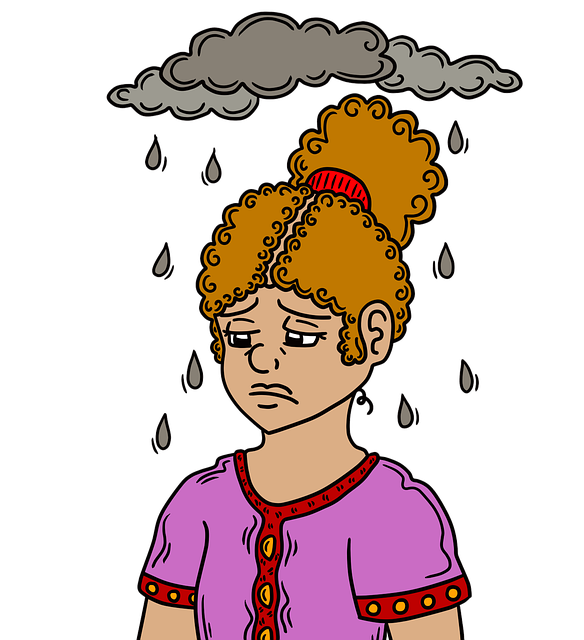Psychodynamic therapy is a powerful tool within depression treatment programs, focusing on exploring past experiences and relationships to uncover hidden conflicts contributing to mental health struggles. By delving into childhood memories and significant life events, patients gain self-awareness, learn to interpret their emotions, and develop healthier coping mechanisms for both mental and physical symptoms. This holistic approach, often combined with CBT and other techniques, offers comprehensive tools for managing depression through personal growth and improved mood, relationships, and overall life satisfaction.
Psychodynamic therapy offers a profound approach to understanding and treating depression by exploring the intricate connection between the mind and body. This therapeutic method delves into unconscious patterns, defense mechanisms, and early life experiences, providing insights that can significantly impact mood regulation.
In this comprehensive guide, we’ll uncover the benefits of psychodynamic therapy for long-term mental wellbeing, including its role in depression treatment programs. From uncovering hidden emotions to integrating various therapeutic tools, we’ll explore how this approach can revolutionize care for those struggling with depression.
Understanding Psychodynamic Therapy: An Overview

Psychodynamic therapy is a type of psychotherapy that focuses on exploring an individual’s past experiences, emotions, and relationships to gain insight into their current mental health struggles. This therapeutic approach is based on the idea that our early life interactions and unconscious mind significantly influence our behaviors, thoughts, and feelings in adulthood. By delving into these hidden aspects, psychodynamic therapy aims to help individuals understand and resolve underlying conflicts that may be contributing to their depression.
In the context of depression treatment programs, psychodynamic therapy offers a unique perspective. It encourages patients to reflect on their childhood, relationships, and significant life events, uncovering patterns and memories that could be triggering negative emotions. Through this process, individuals gain self-awareness, learn to interpret their feelings, and develop healthier coping mechanisms. The goal is not only to manage symptoms of depression but also to foster personal growth and a deeper understanding of oneself.
The Connection Between Mind and Body in Depression

Depression isn’t just a feeling; it’s a complex interplay between mind and body. Research has shown that physical symptoms can significantly impact mental health, and vice versa. In the context of depression treatment programs, understanding this connection is vital. When someone experiences chronic stress or traumatic events, their body’s natural response can lead to chemical imbalances in the brain, contributing to depressive episodes. Conversely, persistent feelings of sadness and despair can manifest as physical complaints, such as fatigue, changes in appetite, and sleep disturbances.
Psychodynamic therapy for depression recognizes this mind-body connection and aims to bring unconscious thoughts and emotions into awareness. By exploring past experiences, relationships, and unmet needs, individuals can gain insights into their depressive patterns. This therapeutic approach encourages individuals to understand how early life influences and defensive mechanisms might be contributing to their current symptoms, fostering a more holistic healing process that addresses both mental and physical aspects of depression.
Uncovering Unconscious Patterns: How Psychodynamic Therapy Helps

Psychodynamic therapy takes a deep dive into uncovering the unconscious patterns and experiences that may be contributing to an individual’s depression. This therapeutic approach believes that past events, often from childhood, can shape one’s current emotional state and behaviors. By exploring these hidden dynamics, psychodynamic therapy helps individuals gain insights into their thought processes and feelings, enabling them to challenge negative patterns and improve their overall well-being.
Through careful exploration of early life experiences, relationships, and defense mechanisms, this therapy assists in identifying recurring issues that may be expressed as depressive symptoms. Once brought to consciousness, these unconscious patterns can be reframed, allowing individuals to develop healthier coping strategies. Psychodynamic therapy thus empowers people to understand the root causes of their depression and offers them effective tools for long-term management within their depression treatment programs.
Exploring Defense Mechanisms and Their Impact on Mood

In psychodynamic therapy for depression, exploring defense mechanisms is a key component in understanding and managing symptoms. These internal psychological strategies, developed in childhood, help individuals cope with distressing thoughts or emotions. However, they can also become maladaptive when overused, leading to rigid thinking patterns and emotional suppression that contribute to depressive episodes. By bringing these unconscious processes into awareness, therapy facilitates the modification of unhealthy defense mechanisms, allowing for more flexible and adaptive coping strategies.
The impact of defense mechanisms on mood is profound. For instance, repression, where painful thoughts or feelings are pushed out of conscious awareness, can result in a numbed state that prevents individuals from processing and resolving emotional pain. On the other hand, projection, where one attributes their own unacceptable feelings to others, can strain relationships and exacerbate feelings of isolation. Identifying these mechanisms is crucial for effective depression treatment programs as it enables therapists to tailor interventions aimed at helping clients develop healthier ways of managing their emotions.
Depression Treatment Programs: Techniques and Therapeutic Tools

Depression treatment programs employ a variety of techniques and therapeutic tools tailored to address the underlying causes of depressive disorders. Psychodynamic therapy, for instance, delves into early childhood experiences and unconscious conflicts to help individuals understand and resolve deep-seated emotional issues that may be contributing to their depression. By exploring these hidden aspects, patients gain insights that can lead to significant personal growth and improved mental well-being.
These programs often incorporate techniques like cognitive behavioral therapy (CBT), interpersonal psychotherapy (IPT), and mindfulness-based interventions to provide a comprehensive approach. CBT helps individuals challenge negative thought patterns and behaviors, while IPT focuses on improving communication and relationships. Mindfulness practices teach patients to be present in the moment, cultivating awareness that can reduce symptoms of depression. Such integrated methods are designed to support holistic healing, offering participants practical tools for managing their mental health effectively over time.
Benefits of Psychodynamic Approach for Long-Term Mental Wellbeing

Psychodynamic therapy offers a unique and powerful approach to depression treatment programs, focusing on the deep-rooted causes and unconscious patterns that contribute to emotional distress. By exploring early life experiences, relationships, and defensive mechanisms, this method enables individuals to gain profound insights into their mental health struggles. Through conversation and reflection, patients can uncover hidden conflicts, resolve internalized traumas, and develop healthier coping strategies.
One of the key advantages is its emphasis on long-term mental wellbeing. Psychodynamic therapy encourages self-awareness and introspection, fostering a deeper understanding of one’s emotional responses. This heightened awareness allows individuals to navigate challenging situations with greater resilience, adaptivity, and emotional regulation. As patients gain insights into their behaviors and patterns, they can make more meaningful changes, leading to sustained improvements in mood, relationships, and overall life satisfaction.
Integrating Other Therapies: A Comprehensive Depression Treatment Plan

When considering psychodynamic therapy for depression, it’s important to understand that it often forms just one component of a comprehensive depression treatment plan. Integrating various therapeutic approaches can significantly enhance the effectiveness of care. For instance, combining psychodynamic insights with cognitive-behavioural therapy (CBT) allows for a multifaceted approach. CBT equips individuals with practical tools to challenge negative thought patterns and behaviours, while psychodynamic therapy delves into underlying emotional conflicts and past experiences. This integration provides patients with a robust framework to manage their depression by modifying unhelpful thinking and behaving while also exploring the root causes of their emotional distress.
Depression treatment programs that tailor these therapies to individual needs have been shown to deliver substantial results. By combining evidence-based practices, healthcare professionals can address multiple aspects of an individual’s well-being, including cognitive, behavioural, and emotional elements. This holistic approach ensures that patients receive a personalized experience that targets the unique manifestations of their depression, fostering more profound and lasting recovery.
